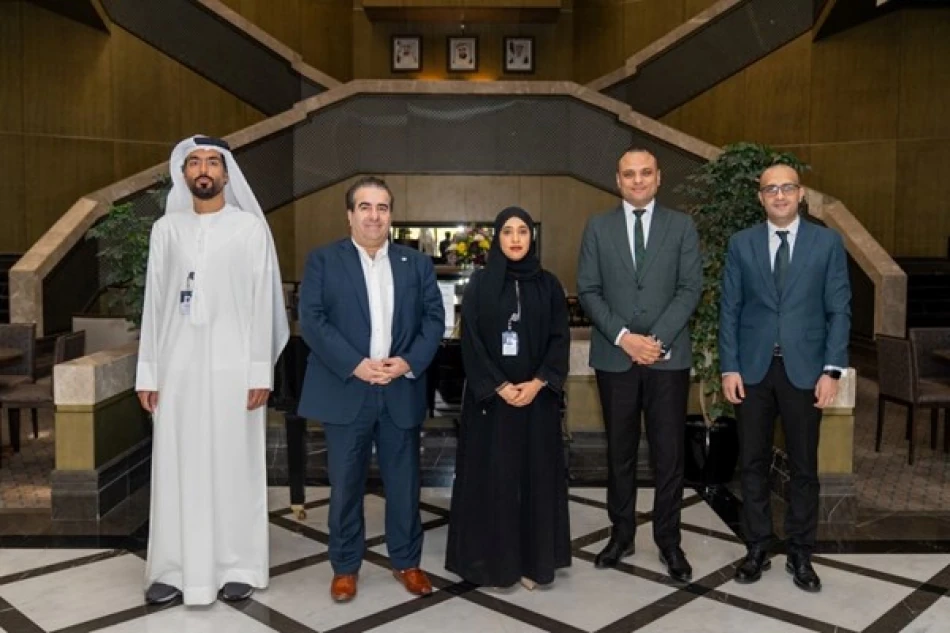
Abu Dhabi Chamber Empowers Entrepreneurs and Small Businesses in Al Ain
Abu Dhabi Chamber Launches Direct Outreach Initiative to Strengthen Small Business Ecosystem in Al Ain
The Abu Dhabi Chamber of Commerce and Industry's Al Ain branch has launched a groundbreaking field initiative targeting small enterprises across commercial, tourism, and agricultural sectors. The program represents a shift from traditional chamber operations toward direct engagement with entrepreneurs, reflecting the UAE's broader strategy to diversify its economy beyond oil and establish robust small business networks across all emirates.
Strategic Field Engagement Over Bureaucratic Distance
The initiative focuses on face-to-face interaction with project owners in their operational environments, allowing chamber officials to gather real-time data on challenges and opportunities. This approach marks a departure from the conventional model where chambers primarily serve as administrative intermediaries between government and business.
Shams Ali Al Dhaheri, Second Vice Chairman of the Abu Dhabi Chamber's Board of Directors and Managing Director, emphasized that field interaction serves as a practical tool for understanding challenges and formulating more responsive commercial policies. The initiative positions the Al Ain branch as a central component within Abu Dhabi Chamber's ecosystem, particularly as it translates the chamber's vision of activating its branches to support comprehensive economic development.
Mapping the Small Business Landscape
The program's first phase involved systematic visits to diverse small enterprises across Al Ain, covering retail, tourism, and agricultural services. The chamber identified nine practical development opportunities within the local business environment during these field tours.
Key Destinations and Scale
The initiative surveyed major commercial hubs including Hili Mall, housing over 100 diverse retail projects, and Ayla Grand Hotel, which provides tourism facilities and resorts. Bawadi Mall, containing approximately 270 commercial outlets across various activities, and Al Ain Mall, owned by Mir Group with more than 300 multi-activity stores, were also assessed.
Beyond traditional retail, the chamber examined Al Amaan Travel and Tourism Company, part of the Bin Ham Group, and Deep Café, which maintains partnerships with 30 local projects. The survey extended to specialized ventures like Code B Flower & Café and Al Narjis Farm, which encompasses community and productive projects.
Economic Diversification Through Grassroots Support
This initiative aligns with the UAE's National Strategy 2071, which aims to establish the country as the world's best nation by its centennial. Small and medium enterprises play a crucial role in this vision, particularly in non-oil sectors that reduce economic dependence on hydrocarbon revenues.
The timing is significant as the UAE economy continues its post-pandemic recovery while navigating global supply chain disruptions and regional geopolitical tensions. By strengthening local business networks, the initiative creates resilient economic foundations that can adapt to external shocks.
Regional Context and Competitive Positioning
The Abu Dhabi Chamber's approach reflects broader Gulf Cooperation Council trends toward economic diversification and small business empowerment. Saudi Arabia's Vision 2030 similarly emphasizes SME development, while Qatar's National Vision 2030 prioritizes private sector growth.
However, the UAE's federal structure allows individual emirates to develop specialized economic strategies. Abu Dhabi's focus on Al Ain's agricultural and tourism potential complements Dubai's emphasis on trade and finance, creating complementary rather than competing economic zones.
Implications for Business Environment and Investment Climate
The initiative's success could influence how other emirates and regional governments engage with small businesses. Direct field assessment provides more accurate data than traditional surveys or regulatory filings, potentially leading to more effective policy interventions.
For investors, this represents improved business intelligence and support infrastructure. International companies considering UAE market entry may find more responsive local partnerships and clearer regulatory pathways as chambers develop deeper understanding of operational challenges.
The chamber's commitment to building a flexible and comprehensive business environment positions Abu Dhabi as a dynamic center for business and investment, potentially attracting entrepreneurs seeking supportive regulatory frameworks and direct government engagement.
Most Viewed News

 Layla Al Mansoori
Layla Al Mansoori






